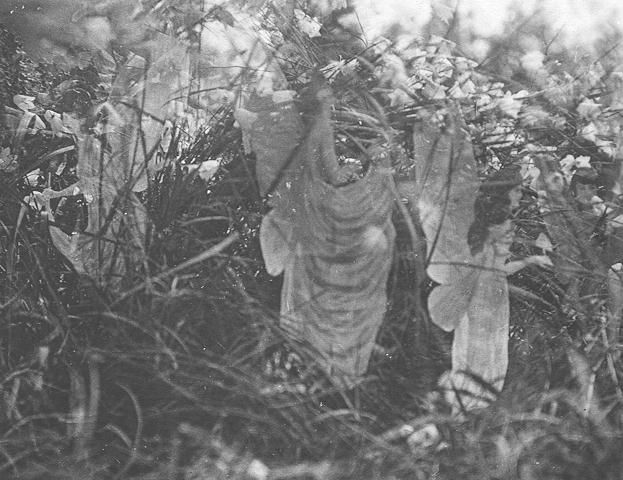 Periodically, I’m asked to name a doctrine that is not found in Scripture.
Periodically, I’m asked to name a doctrine that is not found in Scripture.
This comes up in discussions about the Protestant doctrine of sola scriptura, which holds that we should use “Scripture alone” to form our doctrine.
Knowing that Catholics base their teachings not only on Scripture but also on apostolic Tradition, supporters of sola scriptura ask Catholics to name a doctrine that we know by Tradition rather than Scripture.
It certainly would be possible to name distinctively Catholic teachings, but since these aren’t accepted by Protestants, it’s more helpful to name some that Protestants do accept.
Typically, I name three:
- The fact that there are to be no more apostles (being an eyewitness of Jesus’ ministry was a requirement for membership in the Twelve—cf. Acts 1:21-26—not being an apostle; Jesus appeared to St. Paul and made him an apostle, and if he chose, he could have continued to appear down through the centuries and appoint people as apostles)
- The fact that there are to be no more books of Scripture (you didn’t have to be an apostle—Mark and Luke weren’t—and the Holy Spirit could have chosen to inspire new books of Scripture down through the centuries)
- There is to be no new publicly binding revelation before the Second Coming (God could have chosen to give this, as illustrated by the previous two examples)
Attempts have been made to prove these doctrines by Scripture alone, but none of the arguments are successful. The verses cited simply do not require any of these three doctrines to be true, though they are accepted by Protestants.
This reveals how our Protestant brethren are, at least in practice, willing to accept doctrines that are based on Tradition rather than Scripture alone.
Here I’d like to look at a verse sometimes cited as proof of the third teaching—that there is to be no more public revelation.
Jude’s Plan
The text is found in Jude 3, and for context, here are verses 3 and 4 of the book:
Beloved, being very eager to write to you of our common salvation, I found it necessary to write appealing to you to contend for the faith which was once for all delivered to the saints.
For admission has been secretly gained by some who long ago were designated for this condemnation, ungodly persons who pervert the grace of our God into licentiousness and deny our only Master and Lord, Jesus Christ
Based on the Greek text, scholars have generally understood Jude to mean that although he had been eager to write his audience concerning “our common salvation,” he found it necessary to set that plan aside because they had been infiltrated by certain ungodly and immoral people.
Therefore, he is writing them a different letter, in which he warns them against the ungodly people.
The Faith Once for All Delivered
For our purposes, the key part is Jude’s exhortation “to content for the faith which was once for all delivered to the saints.”
This is the part that interests advocates of sola scriptura: If the Faith has been delivered once for all to the saints, does this mean that the whole of Christian teaching has been revealed, and so there is to be no new public revelation?
There are a number of problems with this idea.
Not the Last Book?
First off, if Jude were saying that all public revelation had ended, then—since Scripture is itself public revelation—the book of Jude itself would have to be the last book of Scripture to be penned.
But we don’t know that at all.
Scholars differ on when the book of Jude was written. My own estimate is that it was written around A.D. 64-65, though it could have been later.
The fact is, we don’t know its date with confidence. Neither can we establish the exact dates of many books of the New Testament, so we don’t know which was last.
For example, if—as often supposed—Revelation was the last book to be written, then Jude would require us to eject it from the canon (with all its newly revealed prophecies), as well as any other books written later than Jude.
Not the Last Part of the Book
There’s another problem with the idea that Jude 3 is saying that public revelation is closed, which is that it’s speaking of this as having happened in the past—as a completed act (“delivered once for all”).
As we’ll see below, this happened quite some time in the past, but even if we ignored that, the moment that Jude said that the faith had been delivered once for all, that would have been the last bit of public revelation—if he was speaking about the closing of public revelation.
In other words, not only would Jude need to be the last book of the Bible written, Jude 3 would need to be the last verse of Scripture written.
If Jude were talking about the closing of public revelation, you would need to delete the remainder of the book (vv. 4-25) from the canon.
“Delivered to the Saints”
It’s worth noting that when Jude speaks of the Faith being “delivered” to the saints, he uses a special term in Greek: paradidômi.
This is the verbal form of paradôsis, which means “tradition”—the term that Paul uses to refer to his own teachings when he commends and commands his audience to keep the traditions that he has given them (1 Cor. 11:2, 2 Thess. 2:15, 3:6).
The verb paradidômi (“deliver”), together with its companion verb paralambanô (“receive”), were used to communicate the giving and receiving of tradition, as in St. Paul’s famous statement:
I delivered to you as of first importance what I also received, that Christ died for our sins in accordance with the scriptures, that he was buried, that he was raised on the third day in accordance with the scriptures (1 Cor. 15:3-4).
Jude is thus conceiving of the Faith as having been given to the saints as a matter of Tradition.
But when was it given?
Here, as elsewhere in the New Testament, “the saints” refer to the Christian community, and of course “the Faith” refers to the Christian faith.
So, who gave the Christian faith to the Church? Depending on who Jude is thinking about, it would either be Christ himself or at least the apostles.
The latter is perhaps more likely, since later in the letter Jude tells the readers, “You must remember, beloved, the predictions of the apostles of our Lord Jesus Christ” (v. 17)—so we know he was thinking about the apostles as he wrote the letter.
Either way, when did Christ and his apostles deliver the Christian faith to the Church?
No later than A.D. 33. That’s when the Faith was delivered: Right at the beginning.
But even though the Faith had been delivered, that did not mean all public revelation had ceased. There would be many more items of public revelation given, as illustrated by all of the books of the New Testament that remained to be written.
And, as Jesus himself said at the Last Supper:
I have yet many things to say to you, but you cannot bear them now. When the Spirit of truth comes, he will guide you into all the truth; for he will not speak on his own authority, but whatever he hears he will speak, and he will declare to you the things that are to come (John 16:12-13).
So, even after Christ had made the first Christians—and thus delivered the Faith to them—there was more public revelation to come.
“The Faith”
It’s worth discussing what Jude means by “the Faith” a little further. When we read a text in the New Testament, we cannot simply assume that it means what we want it to.
We must first ask what the possible range of meanings a term or text has—and then look at the evidence to see which it best supports.
While it is possible to use the phrase “the Faith” to refer to the entirety of the Christian faith—every single doctrine that Christians are expected to believe—this is far from the only meaning of the term.
It also can be used to refer to the substance or core of the Faith—what is often called “the gospel.”
This is the sense in which “the Faith” can be said to have been delivered by Christ and the apostles, since there had been Christians—and thus members of “the Faith”—ever since the first converts accepted the message of Jesus.
If we knew nothing else, we would have to say that Jude 3 could be referring to either of these meanings and, not having decided between them based on evidence, we could only safely assert that Jude was making the more modest claim—i.e., that he at least meant that the gospel had been delivered to the saints.
However, we could not, without evidence, claim—and we certainly could not claim to have proved—that he had the more expansive meaning in mind, which is what the advocate of sola scriptura would need to show.
But, in fact, the evidence points in the other direction: We have already seen, based on the context, that Jude is talking about the Christian Faith having been given to the saints at some point in the past. In fact, decades in the past, by Christ and/or his apostles.
That points us to the more modest understanding of “the Faith” as simply the gospel. The same is indicated by the fact that—as Jesus himself indicated—there would be ongoing public revelation even after he taught the gospel to his disciples
Jude himself would have acknowledged that public revelation was still being given in his day. Certainly he would have acknowledged this if he recognized his own letter as inspired Scripture (cf. 2 Pet. 1:21).
And even if he didn’t automatically recognize his own letter as Scripture, as some have suggested, we do. Therefore, we must acknowledge that public revelation was still being given when Jude wrote.
All of this points to Jude 3 simply meaning that the substance of the Faith—the gospel—had been definitively delivered to the saints, not every item of public revelation that God would eventually give.
As the (Protestant) British scholar Richard Bauckham notes in his volume on Jude in the Word Biblical Commentary:
[T]here is no reason to suppose that Jude means by pistis [“faith”] anything other than “the gospel.” It need not refer to confessional formulae, though such formulae were already known in Paul’s time, nor does it imply the idea of a defined body of orthodox doctrines. . . . Jude’s readers are to contend, not for some particular formulation of Christian belief, but for the central Christian message of salvation through Jesus Christ (at v. 3).
Further, Jude is thinking in particular of the moral demands of the gospel, since he is warning his readers against immoral people. As Bauckham also notes:
Jude’s concern is especially with the moral implications of the gospel (not with doctrinal orthodoxy; hence the idea that “the faith” means a set of doctrinal formulae is quite inappropriate). No doubt he has in mind particularly the instruction in Christian conduct which accompanied the gospel in the initial teaching given by the apostles, but he refers to the gospel itself, hê pistis [“the faith”], because it is the gospel itself for which his readers will be fighting when they remain faithful to its moral demand and resist the antinomianism of the false teachers.
Implications for Sola Scriptura
Jude 3 thus does not prove what advocates of sola scriptura need it to prove. For all the reasons covered above, it does not show that Jude thought public revelation had ceased.
And once we recognize that Jude is simply talking about the substance of the Christian faith—the gospel—it becomes clear that, when he says the faith has been delivered “once for all,” Jude is simply saying that the gospel itself cannot change (cf. Gal. 1:8-9), not that new public revelation cannot be given.
In fact, public revelation—including additional Scripture—was given, as illustrated by the fact Jude does not stop at verse 3. It’s also quite likely that other whole books of Scripture—including, especially, Revelation—remained to be written.
This verse thus does not support sola scriptura.
In fact, even if Jude had meant that public revelation was closed, he doesn’t say anything about all of public revelation being written down. One would thus have to take seriously the possibility that some public revelation continued to be passed on—and preserved by God’s protective guidance—in the form of oral Tradition.
Catholics forthrightly acknowledge that this is what happened—and the fact there is to be no new public revelation before the Second Coming is one of those items of authoritative, apostolic Tradition.
Protestants have, historically, also accepted this teaching, but without an awareness that it is based on Tradition rather than Scripture.
If we were to go by Scripture alone, we would not be able to prove that public revelation has ceased, and thus we could not show that no new Scriptures are to be written and that the canon is closed.

 Great picture! Thanks so much, Jaime!
Great picture! Thanks so much, Jaime! A reader writes:
A reader writes:










 Periodically, I’m asked to name a doctrine that is not found in Scripture.
Periodically, I’m asked to name a doctrine that is not found in Scripture.